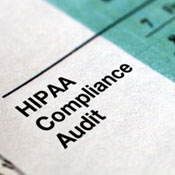The realm of healthcare in Florida is governed by the Medical Quality Assurance (MQA), a comprehensive framework designed to ensure the highest standards of professional practice and patient care. In this blog post, we will delve into the essence of MQA, shedding light on its significance, online services, and the crucial MQA license lookup tool that plays a pivotal role in the healthcare landscape.
Understanding MQA in Florida
MQA stands for Medical Quality Assurance, a multifaceted program administered by the Florida Department of Health. Its primary mission is to protect and enhance the health of all residents and visitors in the state by regulating and overseeing the qualifications and conduct of healthcare practitioners. MQA covers a broad spectrum of healthcare professions, including physicians, nurses, pharmacists, and numerous allied health professionals.
MQA Online Services
In the era of digital transformation, MQA offers a range of online services to streamline and facilitate various processes for healthcare practitioners. The MQA online services platform provides a convenient and efficient way for professionals to manage their licenses, submit applications, and access important information related to their practice.
Professionals can utilize MQA online services for tasks such as license renewal, updating personal information, and submitting documentation required for licensure. This online portal enhances accessibility and expedites administrative processes, allowing healthcare practitioners to focus more on patient care.
MQA License Lookup
One of the cornerstone features of MQA is the license lookup tool, an invaluable resource for both healthcare practitioners and the general public. The MQA license lookup tool enables users to verify the licensure status of healthcare professionals in Florida. This includes information about the professional’s license type, expiration date, and any disciplinary actions on record.
The MQA license lookup tool plays a crucial role in promoting transparency and accountability within the healthcare system. Patients can use this tool to ensure that their healthcare provider is licensed and in good standing, providing them with confidence in the quality of care they receive.
MQA Services
MQA services encompass a wide range of activities aimed at maintaining the highest standards of healthcare delivery in Florida. Some key services include:
1. License Application and Renewal:
Healthcare practitioners can use MQA services to apply for initial licensure or renew existing licenses. The online platform simplifies these processes, ensuring accuracy and efficiency.
2. Compliance and Enforcement:
MQA is actively involved in monitoring and enforcing compliance with healthcare regulations. This includes investigating complaints and taking appropriate disciplinary actions when necessary to safeguard public health.
3. Continuing Education:
MQA provides guidance on continuing education requirements for healthcare professionals. This ensures that practitioners stay abreast of the latest developments in their fields, contributing to ongoing professional development.
Conclusion
MQA in Florida is a comprehensive program dedicated to upholding the integrity of healthcare practices and protecting the well-being of the community. With the advent of MQA online services and the license lookup tool, the program has embraced technology to enhance accessibility and transparency. Healthcare practitioners and patients alike can benefit from these tools, fostering a healthcare environment grounded in accountability, professionalism, and the highest standards of quality care.









